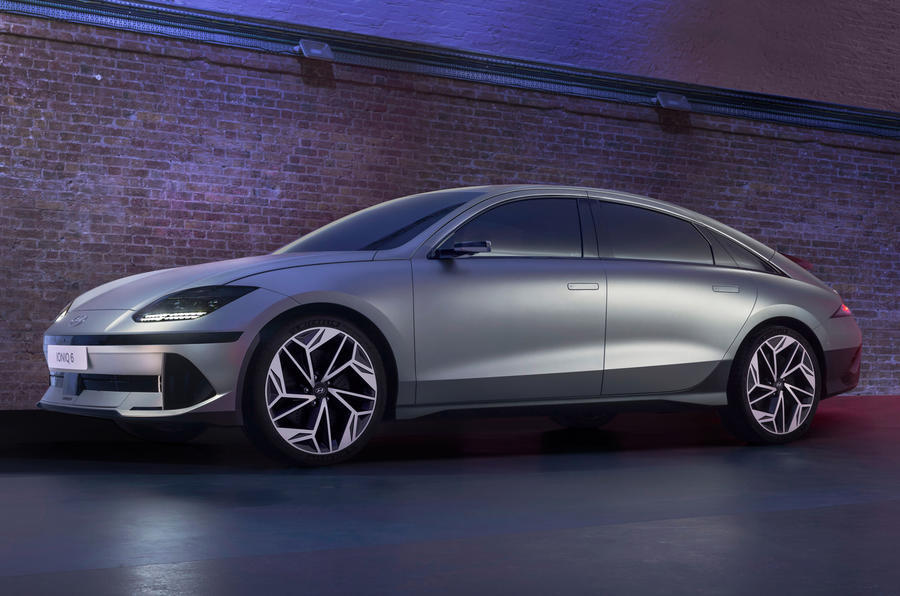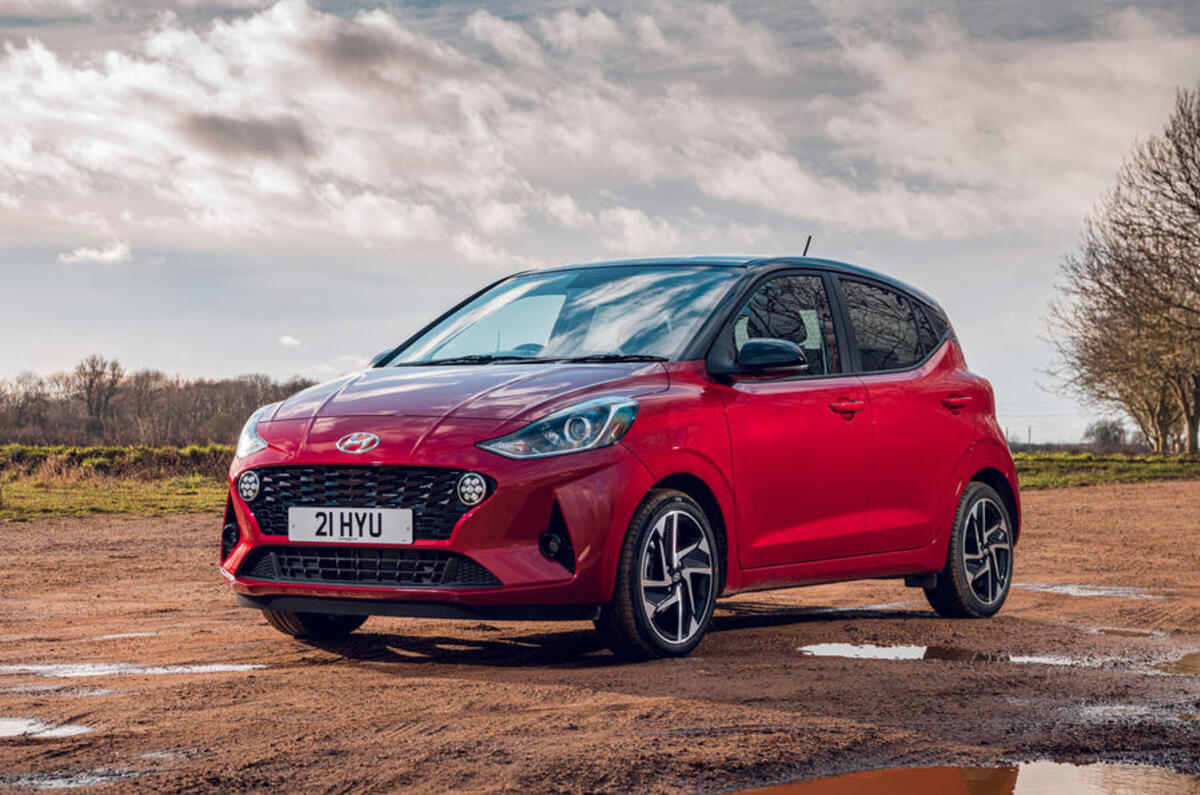Hyundai is developing two small electric cars for the European market, with a sub-€20,000 (£17,041) price tag being proposed.
The as-yet-unnamed cars, expected to be successors to the Hyundai i10 that was released in 2020, will join 10 other EVs that Hyundai plans to release in Europe by 2030.
It's expected that one will be a city car and another a chunkier variant in the vein of the upcoming Volkswagen ID 1. Production is earmarked to begin in mid 2023 and late 2024 respectively.
The cars will be powered by BorgWarner electric motors, the company has confirmed, with peak power hitting 135kW (181bhp), although power and torque can be scaled by the manufacturer.
Hyundai will be rivalling similar projects being undertaken by the Volkswagen Group, which will release small EVs at around the same price under its Cupra, Skoda and Volkswagen brands.
However, production-ready versions of the Korean brand’s cars are still a little while off, Hyundai Motor Europe marketing chief Andreas-Christoph Hofmann told Automotive News Europe.
The move towards affordable small cars, especially electric ones, comes as manufacturers look at ways of releasing new models but staying within new, tighter emissions regulations.
Hofmann said that city cars “are tough to sell profitably”, due to their low pricing and the technology needed to electrify smaller vehicles.
Despite a worry over profits, Hyundai is currently toasting the success of its second-quarter results, as it increased its European sales by 8.2%, with EVs accounting for 16% of this.










Join the debate
Add your comment
I'll believe it when I see it.
The problem is that a lot of people were saying that as EVs became more popular, the cost of manufacture and therefore the price of the cars would drop dramatically.
This hasn't happened, because car makers have accelerated the price rise of ICE and hybrid cars to close that price gap with EVs instead, whilst releasing more and more top-end mega-expensive cars.
Hyundai used to be known to build affordable, good value cars but no more with the Ioniq range carrying huge prices, hence why I don't believe they will make a truly affordable EV city car - even the current ICE i10 is priced very close to £20,000 in top trim!
Car makers are not charities, they are in the business to try and make money.
And prompted by current supply difficulties, most seem to have come to the realisation that it is better to sell a modest number of cars at decent profit than to flood the market with loss making ones.
If cheap cars were profitable and purchased in large numbers maybe we'd see more of them. But no, aided by PCP schemes and low cost finance, the market has shown a preference for premium. We only have ourselves to blame!
@Gavsmit I can't see why Hyundai have these premium priced ioniq models when they have a premium Genesis brand to carry them, surely that internal competition is ruinous for Genesis? The electrifying of their normal range like the Kona etc makes perfect sense, but to go premium with the ioniq range when Genesis is sat there in its European infancy seems odd to me, it could send Genesis the same way as infinity.
However I do hope that Hyundai are able to offer a sensibly priced city EV equivalent of their i10 with a more useable range than say a mini e or honda e, something more akin to the 500e.
@LP in Brighton. I am well aware that car makers are not charities and have to make money. But now Hyundai has gone 'upmarket' in terms of pricing, that's left makes like Dacia and MG to do very nicely instead, thus proving that making value for money cars can still generate a handsome profit for car makers.
As Si73 correctly pointed out, Hyundai has Genesis if it wants to do the prestige badge thing. I personally think that if we weren't in the current global situation including part shortages, Hyundai would've felt more impact of their move to much higher pricing that's lost them a shedload of existing Hyundai customers, like those that bought the first i10 in huge numbers, especially during the scrappage scheme, which also made Hyundai a lot of money, hence why the MK2 and 3 versions of the i10 happened when others chose to drop their city cars (most of which were inferior to the i10 anyway).
I used to buy city cars because they were cheap so I could forgive a lot of their compromises, but that isn't true any more. For example, I quite fancied an i10 N Line until I found that for only a grand more you can buy a year old 1.5 turbo Kia Ceed GT-Line which is a high spec version of a car two classes bigger and with 60 BHP more. And that's at a time when used car prices have gone nuts too.
Hopefully Hyundai can find a way to deliver a reasonably price EV successor to the i10, but in order to do so it will have to go against its current pricing strategy and start offering true value for money cars like it used to. But I can't see that happening.
It's capitalism.
The plans are not new. The electric drive will be supplied by Borg Warner which built an extremely compact propulsion system which include in the same housing the engine and the gearbox. According to first unofficial informations the power will go up to 100 HP. There will be parallel models from Hyundai and Kia and the estimated base price is below 20,000 euro. But I am not so confident that will be so. Today, a Dacia Spring with a 45 HP engine sots 21,400 euro and the CCS plus is another 500 euro So 21,900 euro in total. A VW e-up is priced at minimum 26,300 euro.